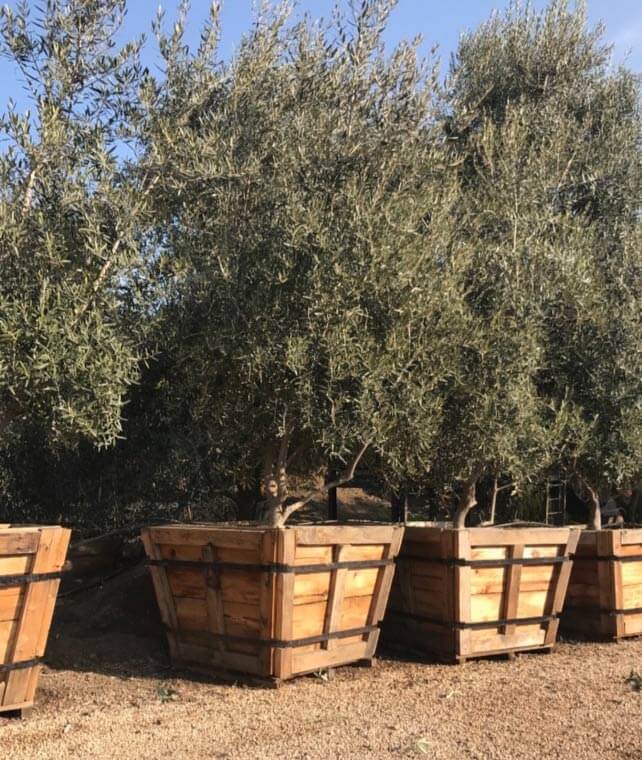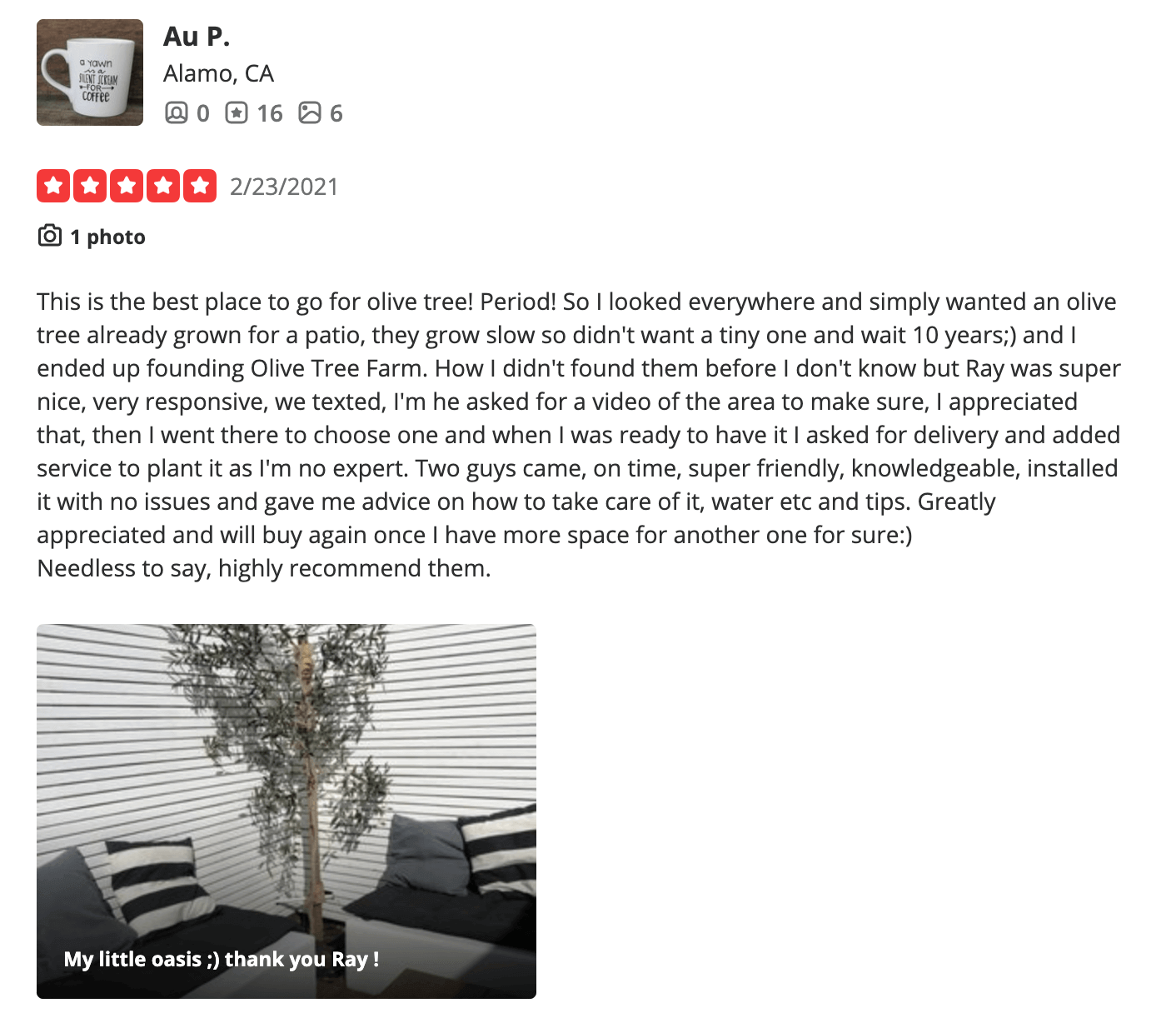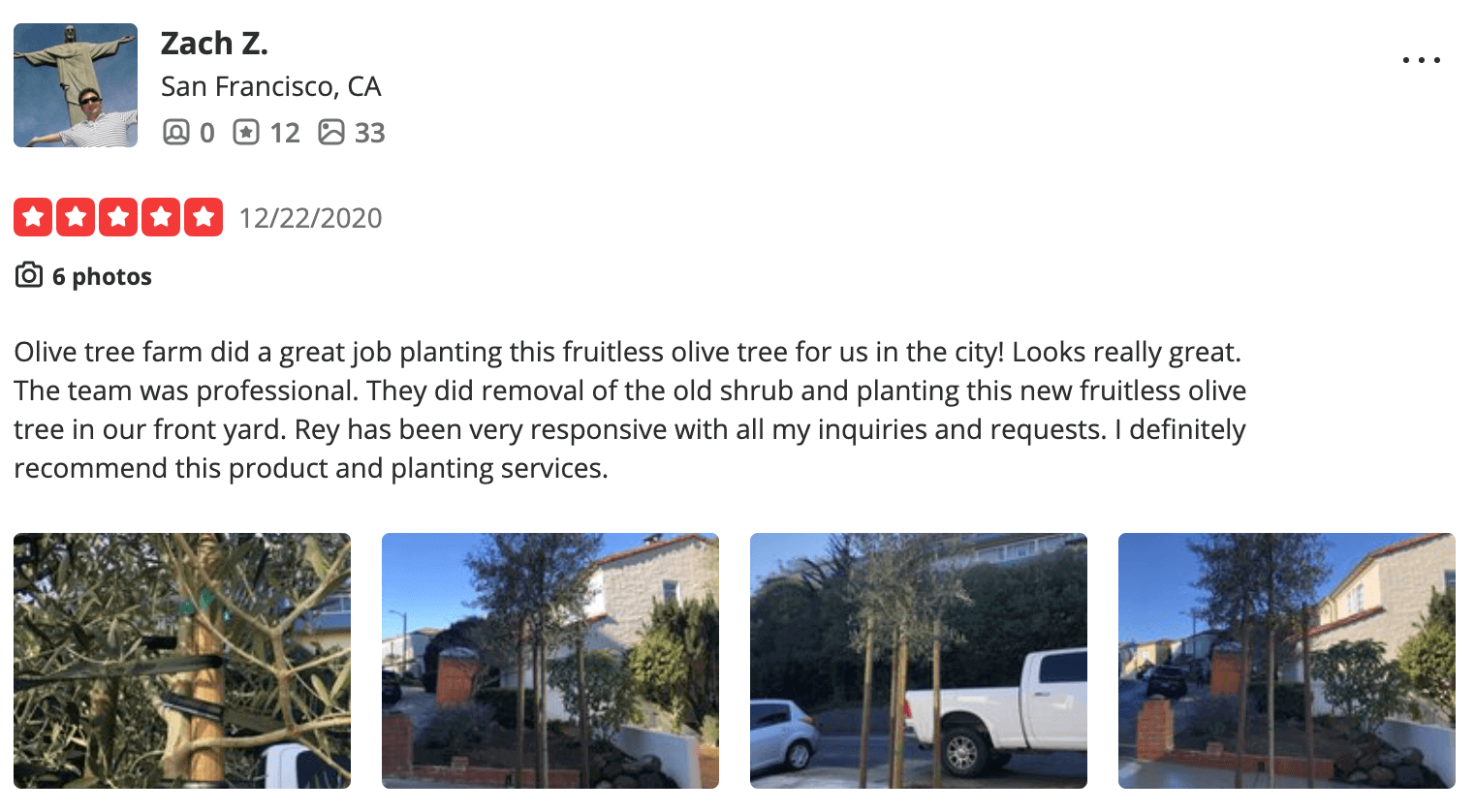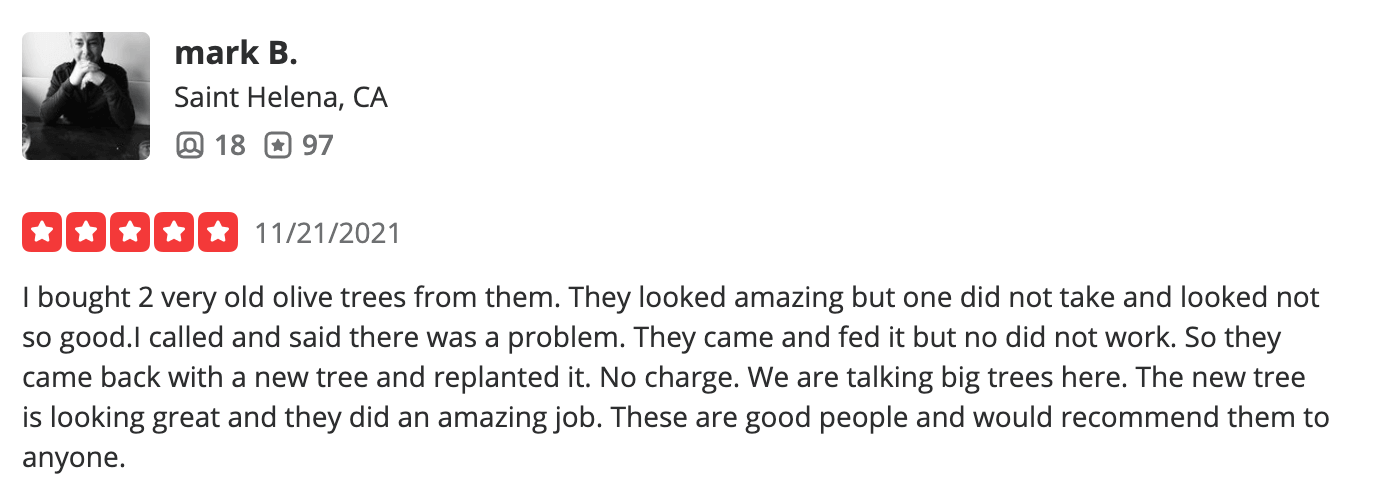Swan Hill Olive Trees

Many people love the coolness of a lush olive tree on a hot day. What they don’t love, however, is the mess all over the ground made by the fruit from the trees.
Wouldn’t it be awesome to have an olive tree that doesn’t produce fruit?
Introducing Swan Hill Olive Trees! This fruitless, virtually pollen-free olive tree is the perfect alternative to other popular olive tree varieties that leave a mess all over your yard.
Check out what you need to know here!
Size
Properly cared for Swan Hill olive trees will grow to spread their branches wide. They reach a mature height of about 30 – 35 feet and can spread 20-30 feet wide. The trunk will branch off in various directions, providing a beautiful spread of foliage.
Growth
These olive trees grow moderately fast and could reach a mature height 10-15 years after being planted. Under ideal conditions and with proper care, the trees grow at an average rate of 2 feet or so per year.
Foliage
The evergreen foliage of the Swan Hill olive tree flourishes year-round. The small, oval-shaped leaves with pointed tips are a beautiful, dark green color on top. The undersides gleam with a silvery glow, adding variety to any landscaping.
Blooming
During the spring, the tree will produce small white flowers — sometimes there can be a lot! However, the flowers are not perfect, meaning they cannot develop into a fruit.
This also means that the tree produces very little pollen. For comparison, it produces less than 1% of the amount of pollen produced by flowering olive tree varieties.
This is super helpful in areas where public health concerns about allergies have led to bans on certain kinds of trees — including other olive trees like the Common European Olive.
Drought
Live in a dry area? Drought resistance should be high on your list of characteristic requirements for your trees.
This is an area where the Swan Hill olive tree shines. Newly planted trees will require more frequent watering. But once they have been established they can survive well with only occasional watering.
In areas with little rainfall, these types of trees are highly desirable in both residential and commercial landscaping. Some areas also have ordinances regarding water efficiency, making drought resistant trees like these a must.
Disease
Certain fungi are a death sentence for some types of olive trees, including the Common European Olive. For example, the fungus Verticillium albo-atrum causes Verticillium wilt, a debilitating disease that will kill a tree once infected.
Swan Hill olive trees have been grafted onto disease-resistant rootstock. This has created a hardier version that is less susceptible to disease.
Light
Swan Hill olive trees love sunshine and are happy to get lots of it! This is another reason why these trees are useful in a variety of applications. They will thrive in full sun, even in a hot climate. Plus, they offer much-needed shade to their human friends who are not so tolerant of the heat.
Already have other trees in your landscaping? That’s not a problem, these olive trees do well in partial sun as well.
Climate
Swan Hill olive trees are a hot-weather plant. They can handle lots of heat, but don’t do so well in the cold. They can take a bit of frost and can tolerate temperatures down to about 15 degrees Fahrenheit. However, they won’t do well if a cold snap like that lasts for long.
How do you know if these trees will do well in your area? Check your local climate zone. These trees do great in USDA climate zones 8 – 11.
Soil Needs
These olive trees aren’t picky when it comes to soil needs. Basically, all they require is well-drained soil, which can be light sandy soil, medium loamy soil, or heavy clay soil. They even grow in hot, rocky areas.
You don’t have to worry about the pH either, Swan Hill olive trees will grow in acidic, neutral, and basic (alkaline) soils.
There doesn’t even need to be lots of nutrients. These hardy trees will grow in pretty much anything!
Water Needs
As we’ve noted, these trees are decently drought resistant and able to flourish even in hot weather. They don’t need to be watered every day, though when the temperature soars they will need extra water. Trees planted in containers also generally need more water than those planted in the ground.
Like most trees and plants, young, newly planted trees will require more frequent watering. Once they become established (about 6 months after planting), you can move to a more relaxed watering plan.
Care and Maintenance
Maintaining Swan Hill olive trees is fairly simple. When planting, keep the mature tree’s size in mind and avoid placing too close to structures or other plants. Place the root ball 1 to 2 inches above the ground’s surface to give the tree room to settle without creating a low spot for standing water.
Watch the tree and water it frequently for 90 days after planting. This is the critical period for ensuring that the tree establishes itself well. Keep a watchful eye out for another 3 months. Once the tree has been in the ground for 6 months, you can switch to a lower frequency watering schedule.
Pruning and shaping should only happen once or twice a year. Late summer and late winter are the best times. Remove dead and sparse branches and prune the tips to encourage growth in sparse areas. Properly pruned olive trees will be beautifully symmetrical and full.
You can apply a slow-release nitrogen fertilizer a year after planting. The best time of the year is September-October. Follow up by slowly watering with at least 15 – 25 gallons of water.
Enjoying Your Swan Hill Olive Tree
There is a lot to love about these gorgeous trees. Their lack of perfect flowers and fruit means no mess all over your yard and very little pollen to deal with. Plus, they are easy to care for even in drier climates and will grow just about anywhere as long as it doesn’t get too cold.
Ready for your own Swan Hill olive tree? Check out our selection here!
Some Of Our Swan Hill Olive Trees
Don’t Take Our Word, Hear What Our Customers Say!



Interested? We’d love to hear from you!
Call us at 707-732-6152 for a free consultation!
Looking for something else? We might have it for you...
Arbequina Olive Trees
Arbosana Olive Trees
Ascolana Tenera Olive Trees
Cerignola Olive Trees
Coratina Olive Trees
Itrana Olive Trees Kalamata Olive Trees
Koroneiki Olive Trees
Leccino Olive Trees
Little Ollie Dwarf Olive Trees
Majestic Beauty Olive Trees
Manzanillo Olive Tree
Maurino Olive Tree Mission Olive Tree
Pendolino Olive Trees
Picholine Du Gard Olive Trees
Picual Olive Trees
Sevillano Olive Trees
Swan Hill Olive Trees
Wilsonii Olive Trees
Zitoun Olive Trees





